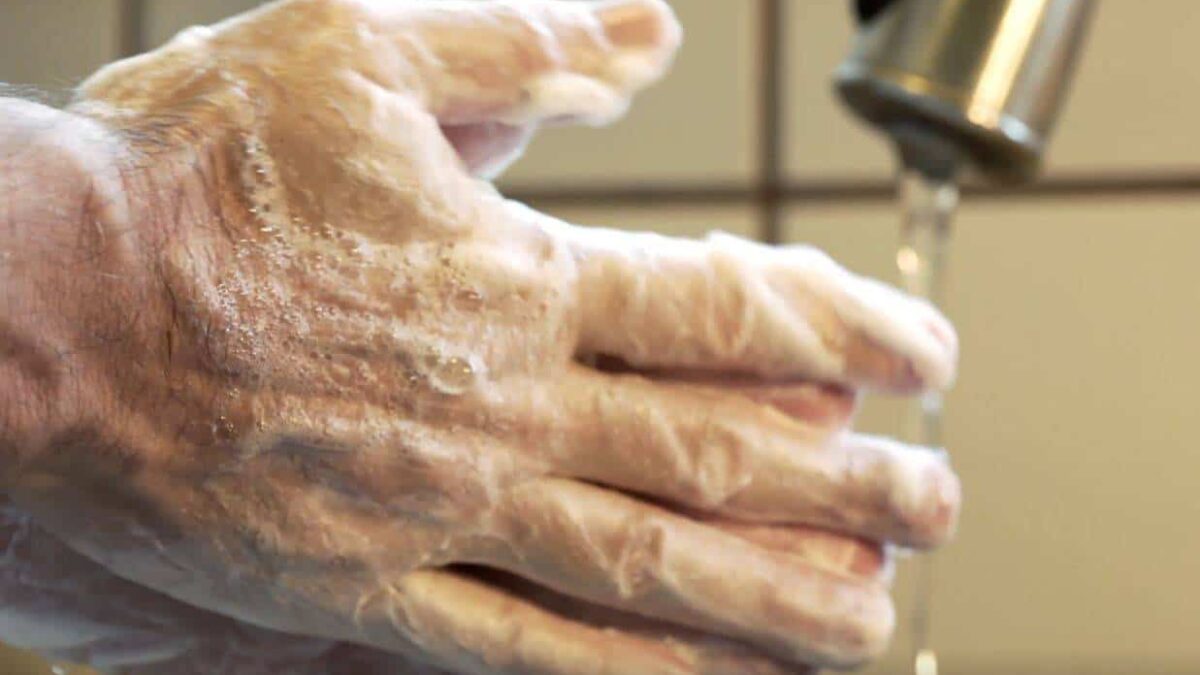
6 Tips to Improve Recovery After a Surgery
February 26, 2020
Positive Energy From A Happier Life for Seniors
March 20, 2020With the coronavirus spreading fast across the the world including the United States, everyone, especially our senior population, needs to be taking extra precautions in keeping as healthy as possible. While most people who contract the coronavirus, experience mild symptoms and actually recover, the wide-spreading virus seems to be impacting the older population with pre-existing conditions, more seriously. The CDC (Center for Disease Control and Prevention) says that people older than 80 with other illnesses have the greatest risk and should take extra precaution. Here are some ways to keep healthy and stop the spread of the coronavirus.
Hand Washing With Soap- The Most Effective Way to Kill the Coronavirus
Think of how soap cuts through the grease when cleaning dishes. Viruses can be thought of as little grease balls. They are made up of little bits of genetic information encoded by RNA surrounded by a coat of fat that holds it together. The virus is only effective when all these parts are held together, so when you wash your hands with soap, the soap dissolves that fat layer and the parts of the virus break down and becomes useless. Everyone including our senior population, needs to be practicing good hand washing habits. Learning proper hand washing techniques are a crucial part of mitigating the spread of the coronavirus, Washing hands with warm water for 20 seconds will render the coronavirus useless as the soap cuts through the lipids (fatty layer) and literally breaking down the parts of the virus as it washes down the drain. Focus on all parts of the hand especially the fingertips and thumbs. 20 seconds is just enough time for the soap to work its way through all the micro crevices of your skin to completely eradicate the coronavirus from your hands. Learn the proper way to wash your hands here from the CDC.
Do You Need Regular Soap or Antibacterial Soap?
Despite misconceptions on the type of soap you should be using, any good old-fashion soap will do the trick. You don’t need antibacterial soap to fight against viruses. Please remember that even if antibacterial soap was proven more effective than regular soap(which it’s not) the coronavirus is a “virus” and not a form of bacteria, therefore “antibacterial” soap won’t be more effective in any case. Learn how the Food and Drug Administration feels about “Antibacterial” soaps here. Most conventional soaps has an ingredient called sodium laureth sulfate which is a detergent (foaming agent) that is mixed with other chemicals to clean our hands without damaging our skin. This ingredient in addition to other chemicals, effectively dissolves and breakdown the lipids (fat) that holds the parts of the virus together. Next time you are out hunting for soap, please remember that it doesn’t have to say “Antibacterial” on the label. Great regular soap brands to use are Dial, Softsoap, Equate, Method.
Use Hand Sanitizer
Despite current panic buying of items such as hand sanitizer, regular hand washing with soap is still the most effective way to rid your hands of the coronavirus. Hand sanitizers should be used when you simply can’t wash your hands, but it’s important to note that the CDC recommends alcohol-based hand sanitizers only and the alcohol content by volume should be at least 60 percent. Just look on the back of the bottle in the ingredients list. Hand Sanitizer is useful but can fail under certain situations such as wet or sticky hands which dilutes the effectiveness of hand sanitizer.
Do You Need a Mask for the Coronavirus?
Masks can be a great way to reduce your chances at infecting other people if you are already infected yourself, but since masks are not air tight around your face, you can still get infected with the coronavirus wearing a mask if you haven’t been infected yet. It’s a great precaution, but due to the public demand, the prices of these medical mask have skyrocketed in price, hence you should be careful in paying high gouging prices for these masks.
No Handshakes
Limiting physical contact such as handshakes are important in the fighting the spread of the coronavirus. The virus can spread via droplets in the air in addition to direct physical contact. Find new ways to greet your friends and other loved ones, such as bumping elbows, and fist bumps.
Practice Social Distancing
During any flu season including this year’s novel coronavirus, it’s best to keep your distance from people and avoid large crowds. Many theme parks, hotels, restaurant, bars, and schools are closing temporarily in attempts to stop the spread of the new coronavirus. Everyone seems to be doing their part in stopping the virus from spreading. We should all be mindful on how our health also affects others in the community. If you feel like you are getting sick (fever, coughing, chills etc.) stay home and avoid going to work or leaving the house if not absolutely necessary. There has been a decline in the travel industry, with near emptied airports and cancelled cruises being reported across the world.
Respect Any Health Care Facility Rules
If you have someone who lives in a facility or currently at a hospital that is restricting visitors, it’s best to abide by the facility rules. One major concern about caring for our senior population during these times in comparison with the flu, is that their are no vaccines to fight the new virus and no other drugs to treat the people who become infected. Most experts agree that we are probably more than a year away from a vaccine although the Trump administration says it could arrive sooner. In any case, it’s important to promote hygiene and social distancing.
Use Technology to Communicate
Although the CDC recommends to practice social distancing, you”ll still need a way to keep in contact with your loved ones. Introducing them to Facetime, Skype or WhatsApp can be a great way to check up on how they are doing and to visually inspect their current physical state.
Be Prepared But Don’t Panic
You’ve probably noticed that everyday household items are getting harder to find in the stores such as bottled water, toilet paper, paper towels, hand sanitizer, and cleaning products. The huge demand for these items is due to the public panic of a potential quarantine situation. People are concerned about not having enough food and supplies to withstand a quarantine for a couple of weeks to a month, and are buying up everything they can. This leaves normal consumers with little to no access to these everyday household staples, so then those people have no choice but to go hunting for these essential items. The CDC recommends having enough supplies for 2 weeks but that is not stopping people for completely clearing out the shelves for not only household items, but food as well. It’s easier said than done, but it is important not to panic. It might take a little longer to find some of these items, but if you are being proactive and keeping your eyes online, you’ll see these item come back in stock sooner than later. Don’t overbuy a certain item. You’ll want to leave some for other people who need the same products you do. Also to keep in mind is that you should purchase what you normally would use or eat. Its important to have cleaning products such as Lysol surface cleaners, and beach to sanitize the surfaces of your house and clean regularly.
Why Is There a Shortage of Toilet Paper?
Despite what you see or don’t see in the stores, there is not a shortage of toilet paper as a whole when it comes to the supply chain. According to Georgia-Pacific, a leading manufacturer in household and commercial toilet paper, it’s a demand problem rather than a supply problem. You don’t see toilet paper on the shelves because of consumer panic buying. Buying more toilet paper than a person needs is from the fear of being quarantined. However, part of the problem is due to the fact that stocking up on household items such as cleaning products and toilet papers makes people feel like they are in control of a situation in a time where little is known about the coronavirus.
Unlike some products on the market, toilet paper doesn’t experience seasonal growth or demand. Manufacturers are already optimized to put out as much product as possible, no more no less. Although these companies are monitoring the current effect of the demand, these manufacturers are predicting that toilet paper products will be back on the shelves within weeks, not months. As time passes, the demand will die down, and the products should be stocked once again. This is the reason why you shouldn’t buy up more than you need and let the supply chain work on getting these items on the shelves again. From a supply perspective, the manufacturers have more than plenty of material to make endless amounts of toilet paper. We as consumers need to keep our cool so everyone can have toilet paper and other household items for that matter.




